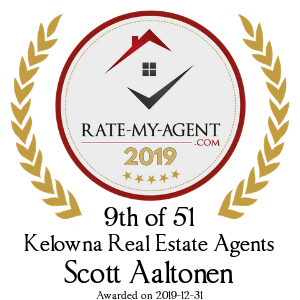Professional Pricing Analysis – what is a fair price to pay?
Worried about overpaying? Concerned that the purchase of your Dream Home will be thwarted by ‘red tape’ or that you’ll ‘miss something’?
That’s why we offer Buyer’s Services to all of our current and past clients – and to their friends and families!
You work hard everyday managing your world, so let us help take some of the strain off managing a Real Estate transaction.
It’s what we do!
Besides, in most circumstances the costs associated with hiring a real estate professional are paid for by the Seller of the home! (ask us more).

Automatic Notifications – Email / Text
We don’t want you to miss out on that perfect home in that perfect location! So, once we have evaluated your needs, we can set you up on an automatic notification that can be programed to alert you via text and/or email the moment a home meeting your needs is listed on MLS.
This will allow you to ‘cut to the front of the line’ and be among the first to view a newly listed property!
Now you can have your nights back, instead of scrolling through hundreds of listings on REALTOR.CA, we will send you only the listings that fit you!
CONTACT US!
Common Questions for Buyers
As a “rule of thumb” you can afford to buy a home equal in price to twice your gross annual income. More precisely, the price you can afford to pay for a home will depend on six factors:
What price home can I afford?
- Your income
- The amount of cash you have available for the down payment, closing costs and cash reserves required by the lender.
- Your outstanding debts
- Your credit history
- The type of mortgage you select
- Current interest rates
Lenders will analyze your income in relation to your projected cost of the home and outstanding debts. This will determine the size loan you can borrow. Your housing expense-to-income ratio is determined by calculating your projected monthly housing expense, which consists of the principal and interest payment on your loan, property taxes and heat (utilities). The sum of these costs is referred to as “PITH.”
We highly recommend the services of a good mortgage broker! Please ask around to family or friends. We currently work with Billie Aaltonen of Verico Compass.


How and what do I negotiate?
Different sellers price houses very differently. Some deliberately overprice, others ask for pretty close to what they hope to get and a few (maybe the cleverest) underprice their houses in the hope that potential buyers will compete and overbid. A seller’s advertised price should be treated only as a rough estimate of what they would like to receive.
If possible try to learn about the seller’s motivation. For example, a lower price with a quick closing may be more acceptable to someone who must move due to a job transfer. People going through a divorce or are eager to move into another home are frequently more receptive to lower offers.
Some buyers believe in making deliberate low-ball offers. While any offer can be presented to the seller, a low-ball offer often sours a prospective sale and discourages the seller from negotiating at all. And unless the house is extremely overpriced, the offer probably will be rejected anyway.
Before making an offer, also investigate how much comparable homes have sold for in the area so that you can determine whether the home is priced right.
What about my down payment?
What about my down payment, should I put more or less down, if we can afford it?
Buyers using a small down payment also have a reserve for making unexpected improvements. It may be more prudent to make a larger down payment and thereby reduce the amount of debt that must be financed. Once a buyer puts twenty percent or more as a down payment on their desired home, they will waive the requirement for mortgage insurance.
Mortgage loan insurance is typically required by lenders when homebuyers make a down payment of less than 20% of the purchase price. Mortgage loan insurance protects lenders against mortgage default, and enables consumers to purchase homes with as little as 5% down payment – with interest rates comparable to those with a 20% down payment.
To obtain mortgage loan insurance, lenders pay an insurance premium. Typically, your lender will pass this cost on to you. The premium payable is based on a percentage of the home’s purchase price that is financed by a mortgage. The premium can be paid in a single lump sum or it can be added to your mortgage and included in your monthly payments.
Mortgage insurance should not be confused with mortgage life insurance which guarantees that your remaining mortgage at the time of your death will not be a burden to your estate.
Ask Billie Broker for any of your Mortgage Needs! ASK


Fixer-Uppers – Are they good or bad?
Planning is the key to a successful renovation. To help you plan your renovation project, your RE/MAX® REALTOR® has information and easy-to-understand tips that can help you assess your requirements and learn the key questions before you get started.
Distressed properties or fixer-uppers can be found everywhere. These properties are poorly maintained and have a lower market value than other houses in the neighbourhood. It is often recommended that buyers find the least desirable house in the best neighbourhood. You must consider if the expenses needed to bring the value of that property to its full potential market value are within your budget. Most buyers should avoid extremely run-down houses that need major structural repairs. Remember the movie “The Money Pit?” These properties should not be tackled without the professional guidance and assistance of trades persons who are in the repair business.


